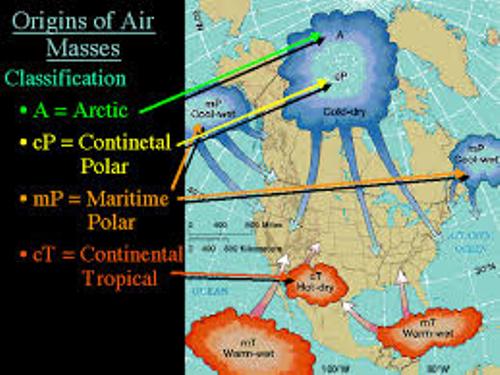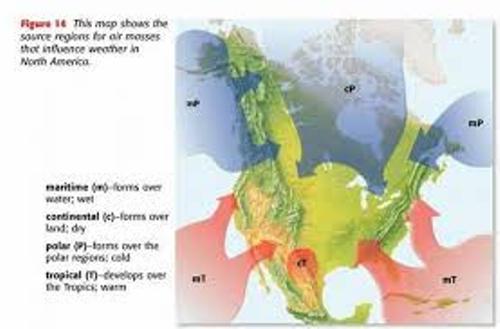10 Facts about Air Masses
Let me show you Facts about Air Masses if you want to know more about one aspect of meteorology. The water vapor content as well as the temperature is used to define the volume in an air mass. The classification of air mass is seen based on the maritime region, continental and latitude. Find out more air mass facts here:
Facts about Air Masses 1: the warm and cold air masses
The arctic or polar is used to call the colder air mass. If you want to call the warmer air mass, call it deemed tropical.
Facts about Air Masses 2: moist or dry
The air masses can be moist or dry. The moist one is seen on the monsoon and maritime air masses. The dry one is on the superior and continental air masses.
Facts about Air Masses 3: modification
The density characteristics of air masses which include the moisture and temperature can be changed easily when the air mass moves from one region to another one which has different characteristics.
Facts about Air Masses 4: classification
There are various kinds of classification that have been made by the scientists. The most widely used and accepted one is the Bergeron classification.
Facts about Air Masses 5: the three letters
If you want to study air masses, you need to know the important three letters of air mass classification.
Facts about Air Masses 6: the first letter
The first letter in air mass classification uses m (moist) to refer to maritime air masses. The c (dry) is for the continental air masses. It elaborated the moisture properties.
Facts about Air Masses 7: the second letter
The thermal characteristics on the source region are defined in the second letter. Those include S for superior air, E for Equatorial, M for Monsoon, A for arctic or Antarctic, P for polar, and T for tropical.
Facts about Air Masses 8: the third letter
The stability of atmosphere is defined on the third letter. The label w is used if you find out that the air mass is warmed compared to the ground below it. If it is colder compared to the ground below it, you have to use k letter. Get more facts about air pressure here.
Facts about Air Masses 9: the qualities of arctic air
The arctic air masses are cold since it is created over the snow and ice. If you compare it with the polar air masses, the arctic air is much older.
Facts about Air Masses 10: polar air masses
Polar air masses are warmer than the arctic air masses for it is created on higher latitude on the ocean and land.
Do you have any question on facts about air masses?







